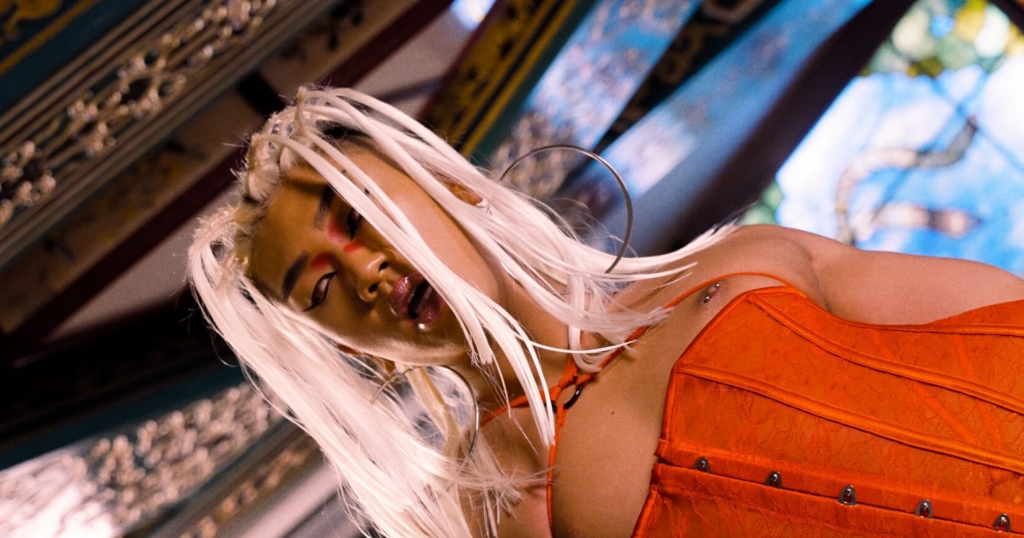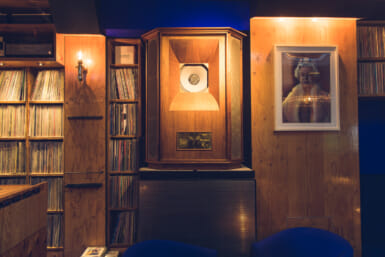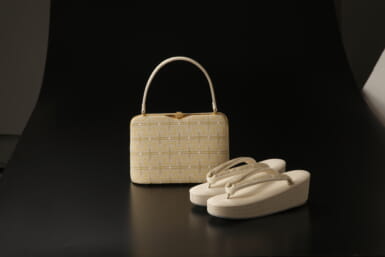Some partnerships just work. When singer and songwriter Aisho Nakajima and director Matheus Katayama met in Shibuya just over two and a half years ago, something clicked.
The pair create fantastic music videos with outfit changes and production quality high enough to befit a major label. Their first outing as a collaborative duo was the soft-hued ballad “Needed” that came out in July last year. It was swiftly followed by another slow mover titled “Midnight Tipsy” last September.
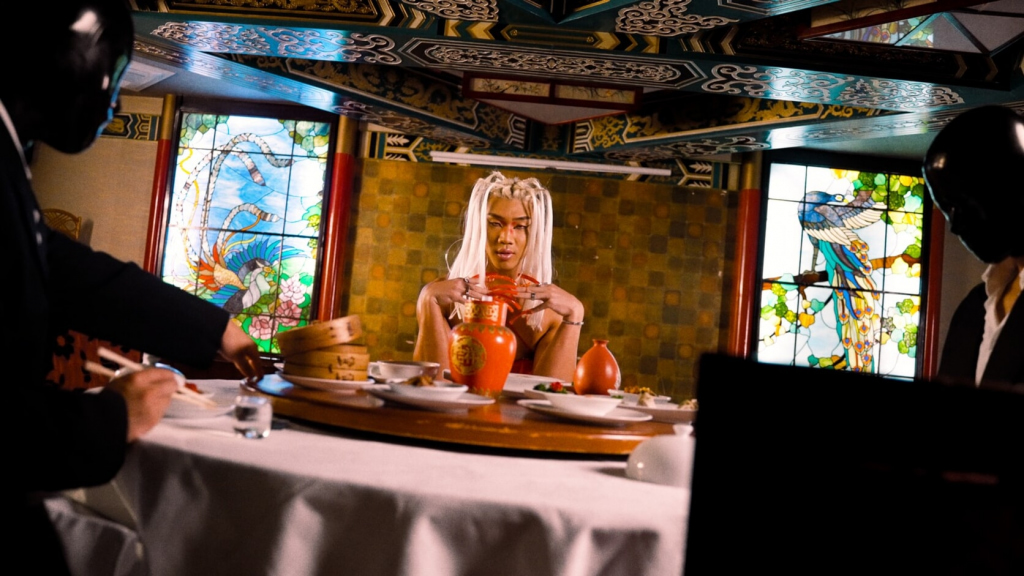
“DLB”
PC music inspired track, “DLB” came after, in a mini epic which shows Nakajima playing the role of Luna, a girl with two sugar daddies. Luna is summoned for a meeting in a “mafia Chinese style” room for what should be her last supper, only to end in an iconic kitchen bloodbath, with Luna winning because she is “a psychotic blood lust bitch.” This, they say, is a metaphor for youth triumphing, as in the end “we’ll be the ones left.”
Despite Katayama confessing that the previous 36 hours had been so tough that he “wanted to die,” they both appear remarkably well composed. Nakajima dials in from his bedroom, dark walls complete with red LED strip lights. The two bounce off each other. Katayama is serious and level-headed while Nakajima gives off half-chaotic, half-composed vibes.
“[When we first met] we knew that we were on the same page visually as artists,” says Katayama. “Aisho aims to do things outside of Japan and the same for me, so I was like ‘I need to work with this artist.’ After that, we just kept texting every day, sharing ideas.”
Such is this constant sharing of memes and other sources of inspiration via social media that Katayama later tells us: “When I’m making the treatment for each music video, I usually — I’m not even kidding — open Twitter and Instagram and that’s our correspondence.”
Iconic Queerness
When asked to describe their videos, without hesitation Nakajima blurts out: “Queer.
“And skin — a lot of skin,” adds Katayama.
“And looks,” continues Nakajima, expanding to talk about the extensive outfits and scenes that make up each video. For the three-minute video for “Midnight Tipsy,” for example, they have 4-5 looks and over six locations.
The pair have created four different videos up until this point, although one will likely never see the light of day “It’s sad” Nakajima concludes, admitting that he is somewhat of a perfectionist. Sometimes shooting takes longer than anticipated, with one hazardous backwards kissing scene taking around 100 tries.
In the end, though, the pair were happy with how it turned out, describing it as “iconic,” adding “that’s all that matters.”
Shooting in Japan as queer creators is not without its obstacles. “It is impossible to find queer — openly queer — casts that are willing to do [queer scenes],” Katayama says.
Nakajima clarifies. “Party scenes are easy. But when it comes to something intimate, like sex, making out, that kind of stuff, it’s hard. It’s a process. We’ve had a lot of people saying no.”
Being gay themselves, the pair are understandably reluctant to cast straight men in queer roles.
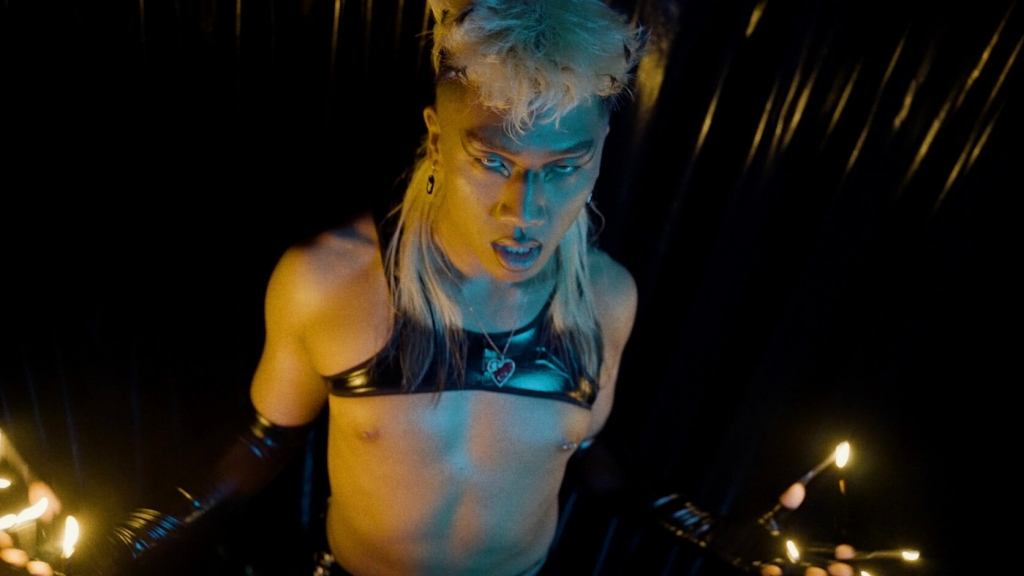
“DLB”
Nakajima touches upon a possible reason for this later on, when asked what needs to change to enable progress. Sadly, it seems somewhat paradoxical. “Just because I’m gay and just because I’m singing about gay sex and gay relationships, that is already just a reason for someone to be like, ‘I don’t care. I don’t want to listen,'” he says.
With regards to what would improve the situation, he continues: “I feel like open mindedness would change a lot of that. Normalization basically, with regards to queer artists, queer music and queer visuals. We also had that situation with the hotel.”
He’s talking about what happened last year. They received backing from a prominent hotel to shoot “Midnight Tipsy.” The hotel, it was said, wanted to support queer artists. But upon sending over the reference video, the hotel backtracked.
Katayama explains: “They gave us a reason, which was, it was too queer for their image, and it could hurt them. But you can rent for X amount per hour and the X amount per hour was pretty much the entire budget for the music video.”
Despite these kinds of setbacks, the two remain remarkably upbeat. According to Katayama, though, things like that happen more than they wish they did. “It only actually pushes me and Aisho to be like, ‘Let’s fucking do this’ because this video will be so iconic.”
There is one positive about shooting queer content in Japan. As Nakajima says: “People get to see something different. Especially in Japan. You don’t see that floating around.”
Literally Us
Katayama recently came under attack from Harry Styles fans for publicly questioning the singer’s queer integrity, after Styles commented that “So much of gay sex in film is two guys going at it.” Contrary to this, Katayama believes that “even abroad in Europe or in the US, there is not much queer, gay, love being represented,” in the way they do it. “They are always very PG,” he adds. “The moment they are going to kiss the scene cuts to something else. Lips never touch.”
“For “Midnight Tipsy,” we had a very — almost sensual — sex scene,” continues Katayama. “And you don’t see that because a lot of people are afraid or uncomfortable to go to that level, which is totally fine.”
This scene is something they wanted to use as a banner on social media, but it got banned almost straight away. “We’re not trying to do anything that is inappropriate,” says Katayama. “It’s just that it’s such a normal thing, being sexual. If you look at any famous queer, gay film, there is no [gay] sex scene.”
Infamously, while there is a straight sex scene in the queer movie Call Me By Your Name, there isn’t a gay sex scene as the camera pans out towards a tree instead.
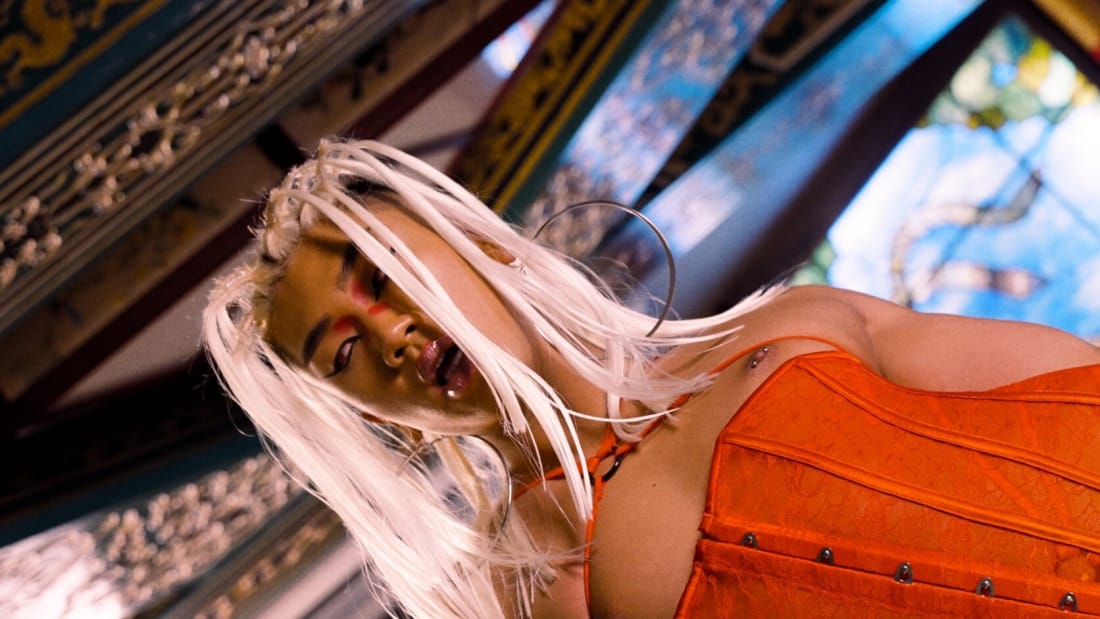
With their openly queer content, especially in a conservative country such as Japan, which still doesn’t allow same-sex marriage, the pair are not without critics. “I’m not trying to push the gay agenda into anybody,” says Katayama. “A lot of people think that Aisho and I are being too noisy about this gay shit. But we’re not. It’s just part of our lives.”
Nakajima adds: “Everyone has sex. But in music videos, they don’t want to see it or think it’s [inappropriate] when it comes to gay sex.”
The most recent video, “DLB” was taken down from TikTok within three minutes of it being uploaded and had to be changed for approval.
Yet, despite the controversy surrounding many of their videos, their spirit remains resolute.
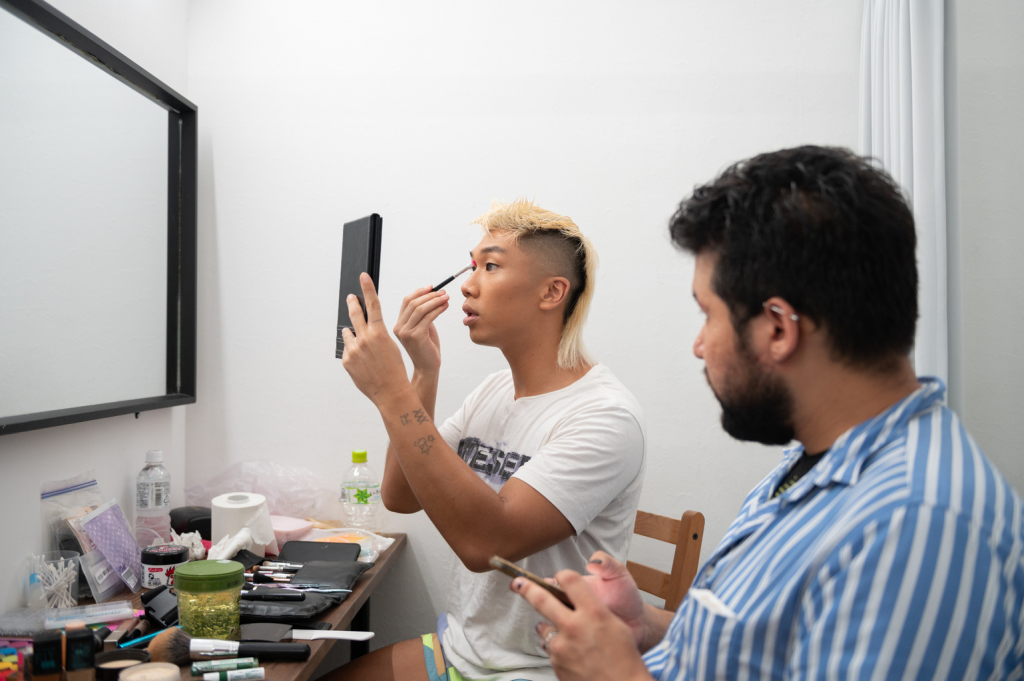
Photo by Lisa Knight
An Aesthetic Match
On working with Nakajima, Katayama says: “Aesthetic wise, we speak the same language [they also both speak in English, an element which Nakajima remarks makes the creative process easier] and we are the same age [both born in 1997]. We had similar backgrounds growing up. So, we have this mutual understanding of each other’s boundaries. It makes our working process very organic and natural.”
Nakajima adds: “We have this thing where we both get it. Whenever I send Matheus a post, he’ll understand.”
Long may their partnership continue.
“Toxic” and “DLB” are out now. “Luna” is set to be released on October 26, 2022.

